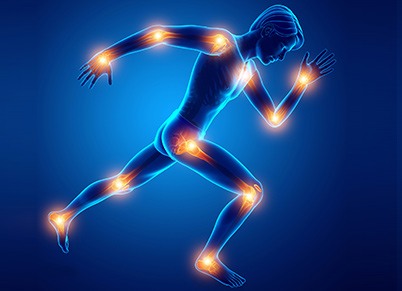Pulse of Information
Your source for the latest insights and updates.
Joint Pain? Let’s Get to the Grit of It
Discover expert tips and real solutions for joint pain relief. Say goodbye to discomfort and reclaim your active lifestyle today!
Understanding the Different Types of Joint Pain: Causes and Remedies
Joint pain can manifest in various forms, often indicating underlying health issues that range from minor injuries to serious conditions. Common types of joint pain include osteoarthritis, which is characterized by the gradual wear and tear of cartilage; rheumatoid arthritis, an autoimmune disorder that leads to painful inflammation; and gout, resulting from the accumulation of uric acid crystals. Each type of joint pain has unique causes such as age, genetics, or lifestyle factors like obesity and physical activity levels. Understanding these distinctions is crucial for effective treatment and prevention.
When it comes to managing joint pain, various remedies can provide relief. Nonsteroidal anti-inflammatory drugs (NSAIDs) are commonly recommended for pain management, while physical therapy may enhance joint function and strength. Additionally, incorporating anti-inflammatory foods and maintaining a healthy weight can significantly aid in reducing symptoms. For chronic conditions, alternative treatments like acupuncture or herbal supplements may offer some relief, but it is essential to consult with a healthcare professional to determine the best approach tailored to individual needs.

Top 10 Effective Strategies to Manage Joint Pain Naturally
Managing joint pain naturally can significantly improve your quality of life. Here are 10 effective strategies that can help you alleviate discomfort without relying solely on medication:
- Stay Active: Regular physical activity, such as swimming or cycling, can strengthen the muscles around your joints and enhance flexibility.
- Maintain a Healthy Weight: Reducing excess weight can lessen the strain on weight-bearing joints, thereby relieving pain.
- Incorporate Anti-Inflammatory Foods: Eating a balanced diet rich in fruits, vegetables, whole grains, and fatty fish can combat inflammation. Omega-3 fatty acids, found in salmon and walnuts, are particularly beneficial.
- Exercise Regularly: Engaging in low-impact exercises such as yoga or tai chi can improve joint function and increase range of motion.
- Use Hot and Cold Therapy: Applying heat can help relax muscles and increase blood flow, while cold packs can reduce swelling and numb sharp pain.
6. Embrace Herbal Remedies: Herbs like turmeric and ginger have natural anti-inflammatory properties that can be effective in managing joint pain. Consider adding them to your meals or taking them as supplements.
7. Stay Hydrated: Drinking plenty of water is essential for joint health, as it helps keep the cartilage in your joints lubricated.
8. Practice Stress Management: Techniques such as meditation, deep breathing, and mindfulness can help reduce stress, which may exacerbate pain perception.
9. Consider Acupuncture: This traditional Chinese medicine practice has been shown to provide relief for some individuals suffering from chronic joint pain.
10. Get Adequate Rest: Prioritizing good sleep hygiene can enhance your body’s healing processes and improve pain tolerance.
Is Your Joint Pain a Sign of Something More Serious? Signs to Watch For
Joint pain is a common complaint, but it's essential to recognize that it can sometimes be a sign of something more serious. While many people experience joint discomfort due to wear and tear from daily activities or minor injuries, persistent pain or swelling could indicate underlying conditions such as arthritis, autoimmune disorders, or infections. If your joint pain is accompanied by symptoms like fever, significant stiffness, or an inability to perform daily tasks, it’s crucial to consult a healthcare professional for further evaluation.
When assessing your joint pain, consider these key signs that may point to a more serious issue:
- Duration: If your joint pain lasts for more than a few days without improvement, it may warrant investigation.
- Swelling: Noticeable swelling around a joint could indicate inflammation or an underlying condition.
- Mobility Issues: Difficulty moving the joint or experiencing weakness could signal a degeneration or injury that requires attention.